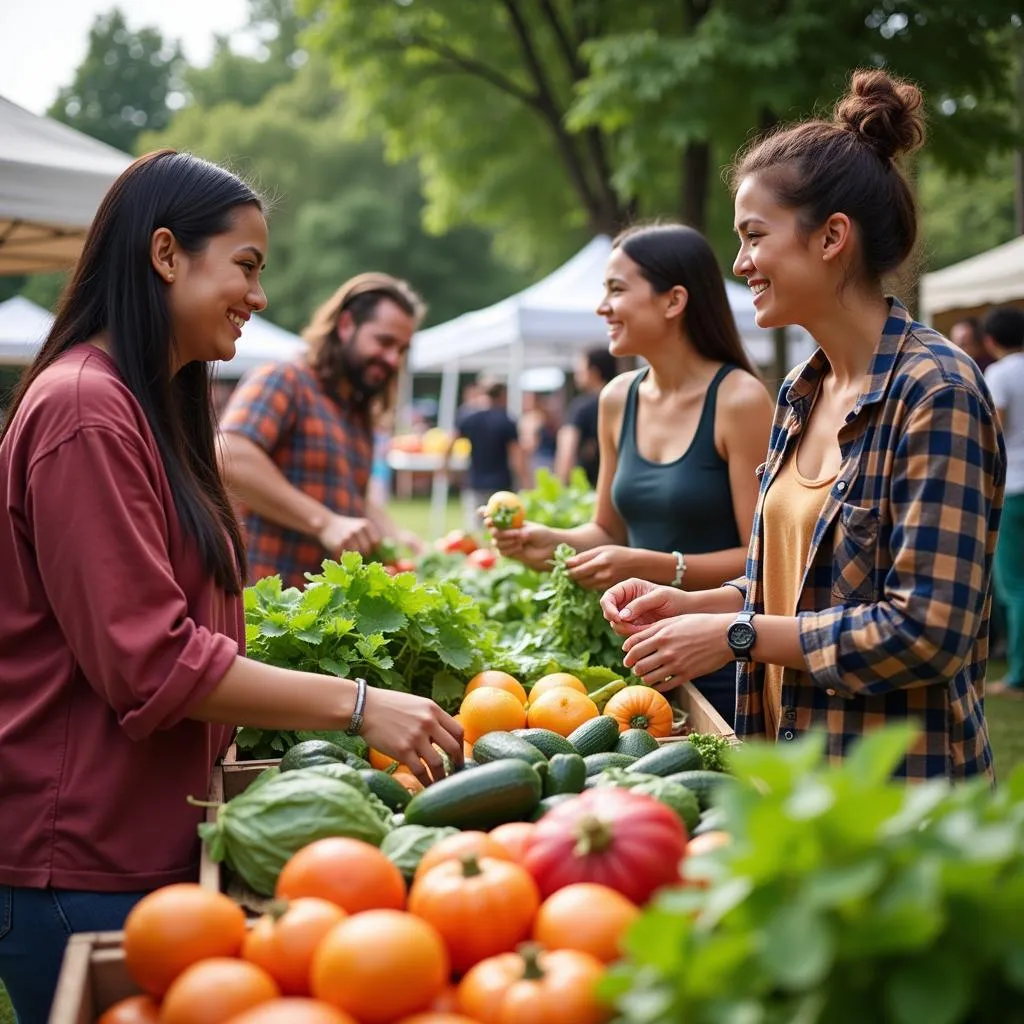Food ethics and society are intricately intertwined, shaping our daily choices and impacting the world around us. From the food we consume to the way it’s produced, every decision carries ethical implications. This introductory text delves into the multifaceted relationship between food ethics and society, providing a framework for understanding the complexities of this vital subject.
Exploring the Food System: From Farm to Fork
Our modern food system is a complex web of interconnected systems, each with its own ethical considerations. Understanding the journey of our food, from farm to fork, is crucial to grasping the ethical dilemmas embedded within it.
- Agricultural Practices: The methods used to grow, raise, and harvest our food raise significant ethical questions. Issues like pesticide use, genetically modified organisms (GMOs), and animal welfare are central to discussions about sustainable and ethical agriculture.
- Food Distribution: The journey of food from fields and farms to our tables involves a vast network of transportation, processing, and packaging, all impacting the environment and raising concerns about food waste and resource consumption.
- Food Access and Justice: The unequal distribution of food and access to nutritious options highlights the social and ethical dimensions of food security. Examining issues like food deserts and the affordability of healthy diets is crucial for creating a more just and equitable food system.
Examining Ethical Consumption: Making Conscious Food Choices
As individuals, our dietary choices hold immense power. By understanding the ethical implications of our food consumption, we can make more conscious decisions that align with our values.
- Plant-Based Diets and Sustainability: The environmental impact of meat production has led many to explore plant-based diets as a more sustainable alternative. Examining the ethics of meat consumption and the benefits of reducing our reliance on animal products is crucial in this conversation.
- Fair Trade and Ethical Sourcing: Supporting fair trade practices and ethically sourced food empowers farmers and workers throughout the supply chain. By understanding the origins of our food and the conditions under which it’s produced, we can make choices that promote social justice and economic fairness.
- Food Waste and Personal Responsibility: Reducing food waste is a critical aspect of ethical consumption. By being mindful of our purchases, properly storing food, and exploring creative ways to utilize leftovers, we can minimize our environmental impact and contribute to a more sustainable food system.
 People choosing fruits and vegetables at a farmers market
People choosing fruits and vegetables at a farmers market
The Role of Policy and Advocacy: Shaping a More Just Food System
Creating a more ethical and sustainable food system requires collective action and policy changes that address systemic issues.
- Government Regulations and Food Labeling: Transparent labeling and regulations play a vital role in empowering consumers to make informed choices. Implementing stricter regulations on food production practices and ensuring accurate information on food labels are crucial steps towards a more ethical food system.
- Advocacy and Community Engagement: Raising awareness about food ethics and engaging in advocacy efforts can drive meaningful change. Supporting organizations working to improve the food system, participating in community gardens, and advocating for policy changes are all impactful ways to contribute.
- Education and Awareness: Educating ourselves and future generations about food ethics is paramount. Integrating food ethics into school curriculums, promoting public awareness campaigns, and encouraging critical thinking about our food choices are essential for creating a more informed and engaged society.
 People holding signs advocating for food justice
People holding signs advocating for food justice
Conclusion: Nurturing a More Ethical and Sustainable Food Future
The journey towards a more just and sustainable food system requires ongoing dialogue, critical reflection, and collective action. By examining the ethical dimensions of our food choices, understanding the complexities of the food system, and engaging in advocacy efforts, we can contribute to a future where everyone has access to nutritious, ethically produced food. The choices we make today will shape the food landscape of tomorrow.
Frequently Asked Questions about Food Ethics and Society
- What is food sovereignty, and why is it important?
- How can I reduce my environmental impact through my food choices?
- What are some ways to support local food systems?
- How can I learn more about food justice initiatives in my community?
- What are the ethical considerations of genetically modified foods?
For further exploration, visit our articles on sustainable agriculture, food waste reduction, and plant-based diets.
Need support in navigating the complexities of food ethics? Contact us at 02043854663, email us at [email protected], or visit our office at Khu 34, Bắc Giang, 260000, Việt Nam. Our dedicated team is available 24/7 to assist you.